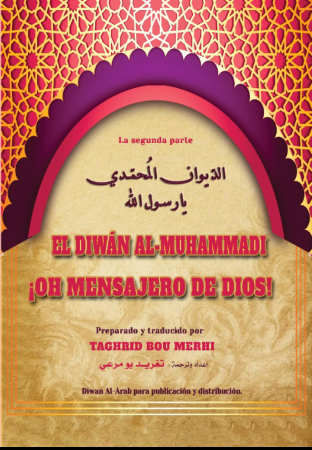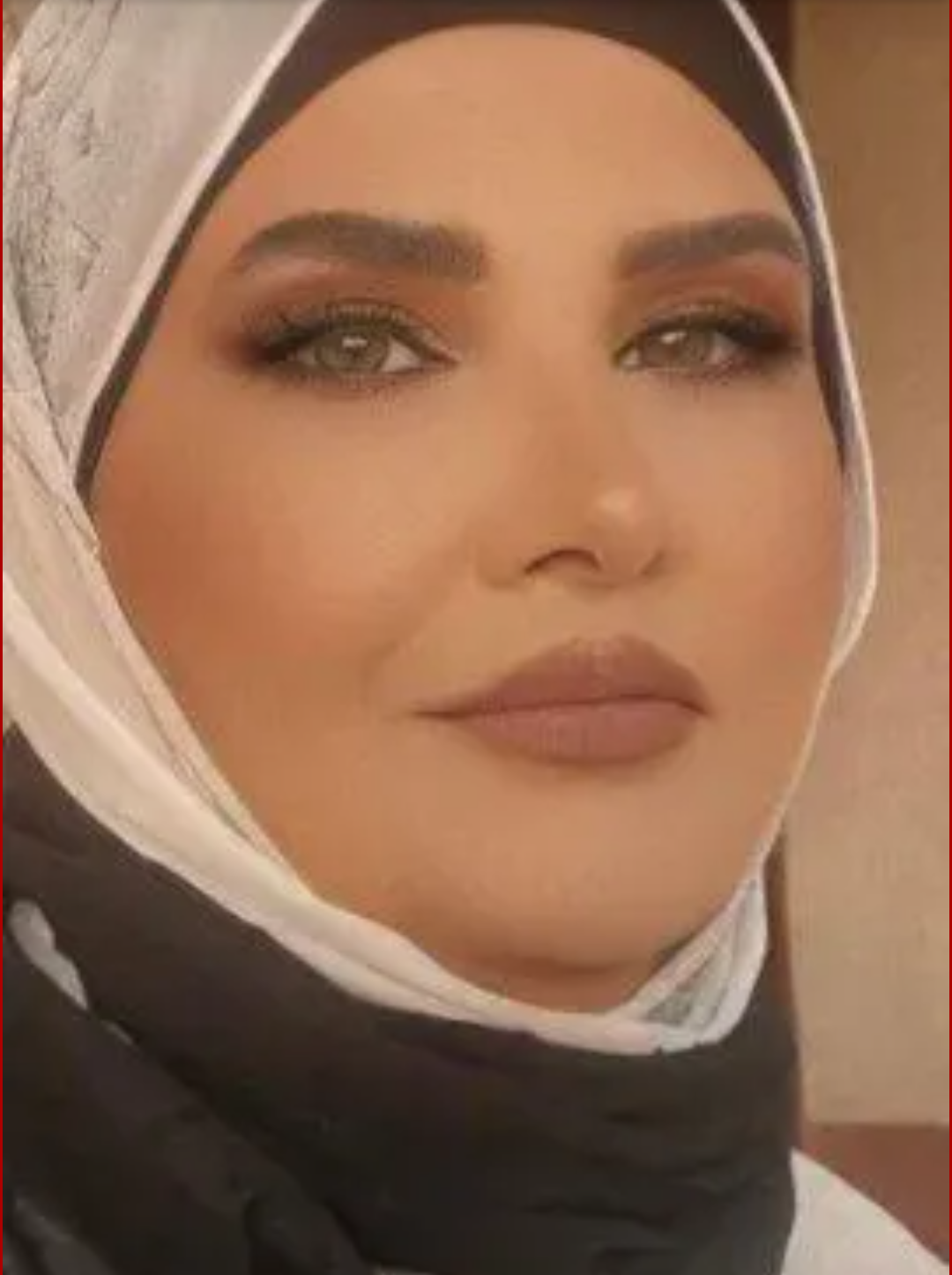100 Poets from across the Arab world participated in this initiative led by Lebanese poet and translator Taghrid Bou Merhi
‘Diwan Al-Arab’ for Publishing and Distribution, has released “EL DIWÁN AL-MUHAMMADI… OH MENSAJERO DE DIOS,” an extensive collection of poems praising the Prophet Muhammad.
One hundred poets from across the Arab world participated in this initiative led by Lebanese poet and translator TAGHRID BOU MERHI, which translated the Diwan into Spanish language.

The collection, presented in two parts, each featuring 50 poems by prominent Arab poets, includes an introduction by the Iraqi poet Adnan Al-Jumaily. The cover design is by Mona El Mogi, and it will be available at the Cairo International Book Fair in 2024.
PREFACE
Written by TAGHRID BOU MERHI
The Prophet Muhammad (peace be upon him) is the Prophet of Islam and one of the greatest historical figures globally. Born in Mecca in the sixth century AD, he lived a life full of challenges and successes. From the very first moment of his life, he excelled in being a role model for ethics and humility, becoming a positive example for humanity and a great leader guiding with the light of divine revelation. He led the Islamic call and established an Islamic state in Medina. Through his efforts and noble conduct, he left a profound mark on history, significantly impacting millions of Muslims worldwide.

Taghrid Bou Merhi
Deewan-Muhammad-Sindh CourierPoetry plays a significant role in conveying the biography and story of the Prophet Muhammad to the world
He left a divine message that extends through time, and his virtuous and noble life reflects the values of Islam. He faced difficult circumstances and numerous challenges, but his patience and unwavering faith in God were the sources of his strength.
Poetry plays a significant role in conveying the biography and story of the Prophet Muhammad to the world. Through poetry, writers and poets can express the details of the Prophet’s life in a literary style that touches the hearts of readers and listeners. Poetry is used to express the virtues and achievements of the Prophet in ways that make these stories more accessible to the public.
Taghrid Bou Merhi -sindh-courier
Taghrid Bou Merhi
The collection, in its two parts, reviews his blessed journey, noble deeds, and highlights his charitable actions and the noble message he carried to change the world, all through poetry.
But how can this poetry and the biography of the Prophet Muhammad be conveyed to other cultures? This is where translation comes into play, acting as a bridge between languages and cultures. Translation allows poetic and literary works to reach new and diverse audiences. Translation must be accurate and qualified to convey ideas and feelings correctly.
Achieving cultural communication is the goal of translating the biography and poetry related to the Prophet Muhammad. The translator must be proficient in both the source and target languages, in addition to having a deep understanding of both cultures. Translation can help enhance understanding of the Prophet Muhammad, his values, and his message to the world, contributing to the promotion of peace and cultural understanding among different people worldwide.
INTRODUCTION
By Iraqi poet ADNAN AL-JUMAILI
Poetry, since its inception, has been a translation of human emotions and sensations that grip hearts and souls. Its purposes and contents have varied, but they all share the common goal of stirring people’s emotions and instilling joy, happiness, and beauty in their minds and souls. Poetry serves as the scroll on which the poet inscribes a multitude of thoughts, perhaps philosophical, emotional, wise, or other themes related to people’s lives and social conditions.
God Almighty has endowed our Arabic language with the capability and competence to translate the poet’s ideas, emotions, and the myriad thoughts circulating in their minds in the best and most beautiful expression. This is not surprising as it is the language of the Holy Quran, a source of pride in itself.
The best poetry is that which has diverse wording and truthful meanings, coming forth sound and sincere, far from affectation. The ability of poets to craft poetry varies, encompassing the strength of structures, images of beauty, and eloquence.
The best poetry is that which has diverse wording and truthful meanings, coming forth sound and sincere, far from affectation
Arab poets, by nature, tend toward truth and sincerity, often avoiding exaggeration. Criticism does not exceed the limits of reality, and praise is based on what is real and present in the subject of praise. Here, we are dealing with a magnificent collection, a great honor, with a remarkable content, and its name alone is indicative of its content – “EL DIWÁN AL-MUHAMMADI… OH MENSAJERO DE DIOS!” One hundred poets and poetesses from various corners of our vast Arab homeland participated in this noble diwan, sharing their feelings and poems in praising the Seal of the Prophets, the purest of messengers, the Messenger Muhammad (peace be upon him), leaving a wonderful impact for Muslims in general and all of humanity.
Allah Almighty, by the right of His Chosen One (peace be upon him), stated in His precise book, “And We have not sent you, [O Muhammad], except as a mercy to the worlds.” The one praised here is not an ordinary person, ruler, or sultan, but the greatest man humanity has produced since God created the earth and established His throne. He is the beloved of God, the answered intercessor, the possessor of the praised station on the Day of Judgment, the Seal of the Prophets, and the leader of the virtuous.
No poetry, no matter how eloquent, from his time to ours, and until the Day of Judgment, will reach the secret of his greatness and the majesty of his rank before Allah Almighty. The Syrian poet Amin al-Jundi said:
“Every poet will perish,
And time will continue what his hands have written.
So do not write anything with your hand
That you will be pleased to see on the Day of Resurrection.”
By my life, the best that delights the writer and poet on that promised day is to praise the Prophet Muhammad (peace be upon him), follow his example, and walk in his path. Perhaps these blessed words will be the intercessor for their author with Allah Almighty. They are for the possessor of the praised station and the answered intercessor, the Chosen One (peace be upon him). There is no truer expression and feeling than his praise. No matter what poets write in their eloquent verses, they will not reach the secret of his greatness and the majesty of his rank before Allah Almighty, who lowered him down to the lowest heaven or even closer.
The poet of the Messenger, Hassan bin Thabit, is worthy of praise when he described him and said:
“And better than you my eyes have never seen
And I am more complete than you that women have not given birth
You were created free from every defect
As if you were created as you wish…”
She made this blessed effort and collected the poems and translated them into Spanish, and perhaps she will translate them into other languages. She is the daughter of the Land of the Cedars (Lebanon), the righteous and multi-talented writer, poet, journalist and translator (TAGHRID BOU MERHI). Her great efforts have resulted in an immortal book that will be passed down from generation to generation, which is (THE MUHAMMAD DIWÁN… O MESSENGER of GOD) May God reward her with the best reward and bless her and her great endeavors until the Day of Judgment…..
Published with sindhcourier
Comments